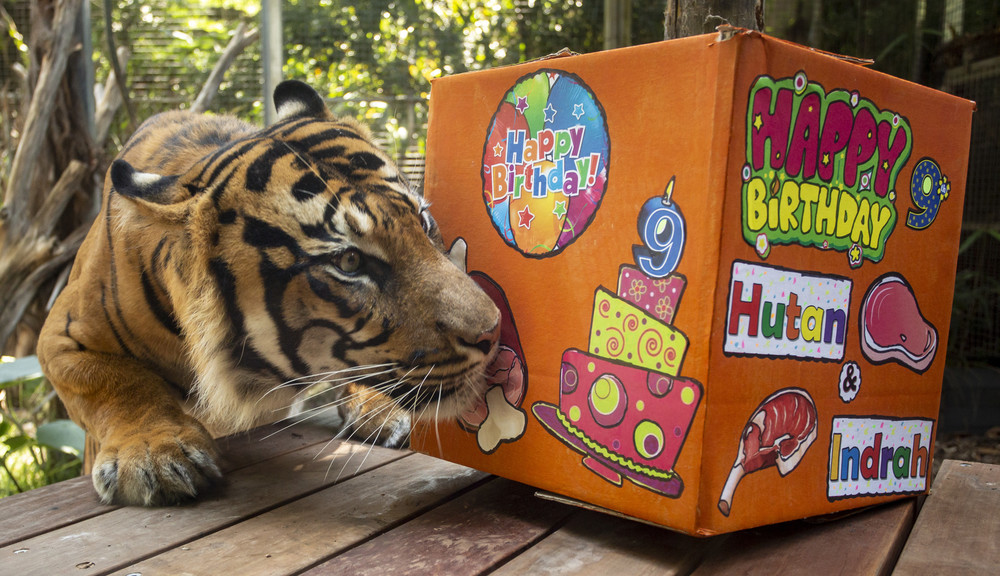Sumatran Tiger
Sumatran Tigers are highly adapted to ambush hunting, using their stripes as camouflage against the dappled light of the forest floor.
The Sumatran Tiger is classed as critically endangered, and their numbers are falling — recent reports suggest there are fewer than 400 of them left in the wild. Threats include habitat loss, human-tiger conflict, disease, hunting for traditional medicine, and loss of prey.

Melbourne Zoo support the managed captive breeding program for Sumatran Tigers in the Australasian region.
Meeting our Sumatran Tigers is not only an opportunity to see these rare animals, but also to learn about the threats they face, the international community’s conservation efforts, and how Zoos Victoria contributes to the fight.
Sumatran Tigers are found on the Indonesian island of Sumatra, where they prey on wild boar, birds, tapir, fish and deer.
They’re one of nine subspecies of tiger, three of which are already extinct. A fourth subspecies is sadly also believed to be extinct, with no signs of its existence in the past decade.
Sumatran Tigers are the smallest of all tigers, and their size assists them in navigating the dense, tropical forests in which they hunt. It’s believed they became isolated to Sumatra when rising sea levels smothered the land, causing the formation of islands in the region.
Facts about Sumatran Tigers
- Tigers are solitary animals, they live alone except for mothers who live with their young cubs while caring for them. We replicate this natural behaviour at Melbourne Zoo by keeping our two tigers separate.
- They’re proficient swimmers, and can cross rivers that are 7–8 km wide without difficulty.
- They attack their prey from the rear; only one in 10–20 attempts succeed in a kill.
Meet the animals

Hutan was born in 2010. He loves enrichment involving food and scents. Keepers use aromatic spices, perfumes, and even Vegemite to engage his natural behaviours. This smelly activity provides positive mental stimulation and encourages natural responses like scent marking. To learn more about how we care for critically endangered Sumatran Tigers, book a Tiger Behind The Scenes experience at Melbourne Zoo.


